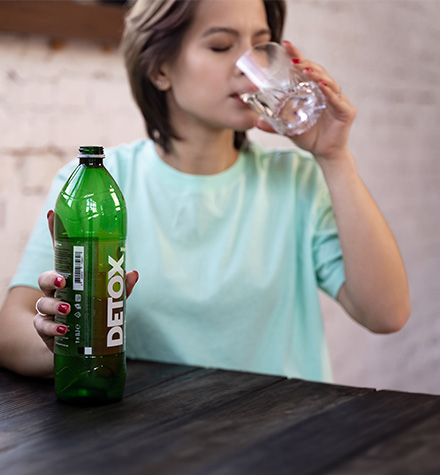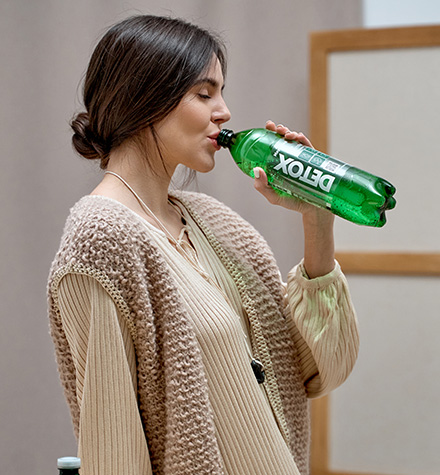Mineral water for pregnant women: tips and tricks for use

Water is an important element for every person, and during pregnancy its importance increases several times. The body of a pregnant woman undergoes significant changes, and maintaining the right water balance becomes one of the most important tasks for the health of the mother and her unborn child.
Water has several critical functions during pregnancy. It promotes proper digestion, maintains the optimal blood volume needed to deliver nutrients to the fetus, and helps to eliminate toxins from the body. In addition, water is a key component of amniotic fluid, which protects and supports the development of the baby.

Can pregnant women drink mineral sparkling water?
The answer is yes, you can. However, you should pay attention to the composition of the water and your personal sensations when drinking it. The fact is that each body is unique, and therefore can react differently to mineral soda. It's worth remembering stories when you give up your favorite drinks or food during pregnancy simply because you don't feel like it. This is normal and you should listen to your body.
You should also remember that not all mineral water is the same. Water can be natural or artificially carbonated, with different content and amount of minerals. It is better to give preference to water with low or medium mineralization (up to 1000 mg/l).
DETOX medicinal table water for toxicosis
Up to 80% of pregnant women experience nausea or vomiting, which usually occurs at 8-12 weeks and disappears by 18 weeks. Although these indicators are normotypical, toxicosis can lead to dehydration and a lack of micronutrients, which are especially necessary for pregnant women.
In pregnant women, dehydration caused by vomiting or insufficient drinking causes loss of water and electrolytes (sodium, potassium, magnesium, etc.), which disrupts the water-salt balance. The body is not able to restore ions on its own, so it is important to get them with water or food. That is why it is important to drink Aqua Myrgorod DETOX water rich in vitamins and minerals. It not only replenishes the water balance, but also saturates the body with minerals.
DETOX for heartburn
Heartburn is a common problem during pregnancy, caused by changes in hormones and increased pressure on the stomach from the uterus. And yes, mineral water can help reduce heartburn, but it is important to choose the right type of water.
DETOX mineral water can be useful in relieving heartburn symptoms. Due to its mineral composition, it helps to restore the acid-base balance and improves digestion. However, it should be added that if a pregnant woman has a medical condition, she should consult a doctor before regular consumption.
DETOX is an effective solution for relieving heartburn if used correctly and in accordance with the recommendations of specialists.
DETOX for dehydration
Aqua Myrgorod DETOX is a natural source of useful trace elements and minerals, such as magnesium, calcium and potassium, which are vital during pregnancy. Magnesium, for example, helps to prevent muscle cramps that often plague pregnant women, and calcium contributes to the healthy development of the fetal bone system. Potassium, in turn, supports the functioning of the cardiovascular system, which is important in conditions of increased stress on the body.
Monitor your mineralization level and consult your doctor if necessary. These simple measures will help maintain your health and ensure a comfortable pregnancy.
How to use DETOX water in different conditions
Aqua Myrgorod DETOX is perfect for pregnant women, especially during toxicosis, heartburn and dehydration. Its composition, rich in magnesium and sodium, helps to stabilize the acid-base balance, reduces the acidity of gastric juice, and also helps to reduce nausea. Magnesium has a positive effect on the nervous system, helps to relax muscles and improve sleep, which is especially important during pregnancy.
Recommendations for use:
1. To relieve toxicosis
Consume water on an empty stomach in small sips, especially in the morning, to reduce nausea. Drink 150-200 ml of DETOX throughout the day.
2. For heartburn
Drink small portions every 2-3 hours. This will help reduce acidity and avoid exacerbation of discomfort.
3. To prevent dehydration
Drink water at room temperature or slightly warm to reduce the risk of heartburn.
According to research, pregnant women need to consume more water. Of course, you should be guided, first of all, by the woman's comfort level. However, it is recommended that you consume about 1 liter of DETOX water and 1-1.5 liters of regular water daily, distributed evenly. In hot weather or with additional physical activity, it is recommended to increase the volume of water consumption.
In addition, DETOX water helps to cleanse the body of toxins, supports kidney function and helps to restore microcirculation. It is important to remember that you should always consult your doctor before changing your diet to take into account the individual characteristics of your condition.









